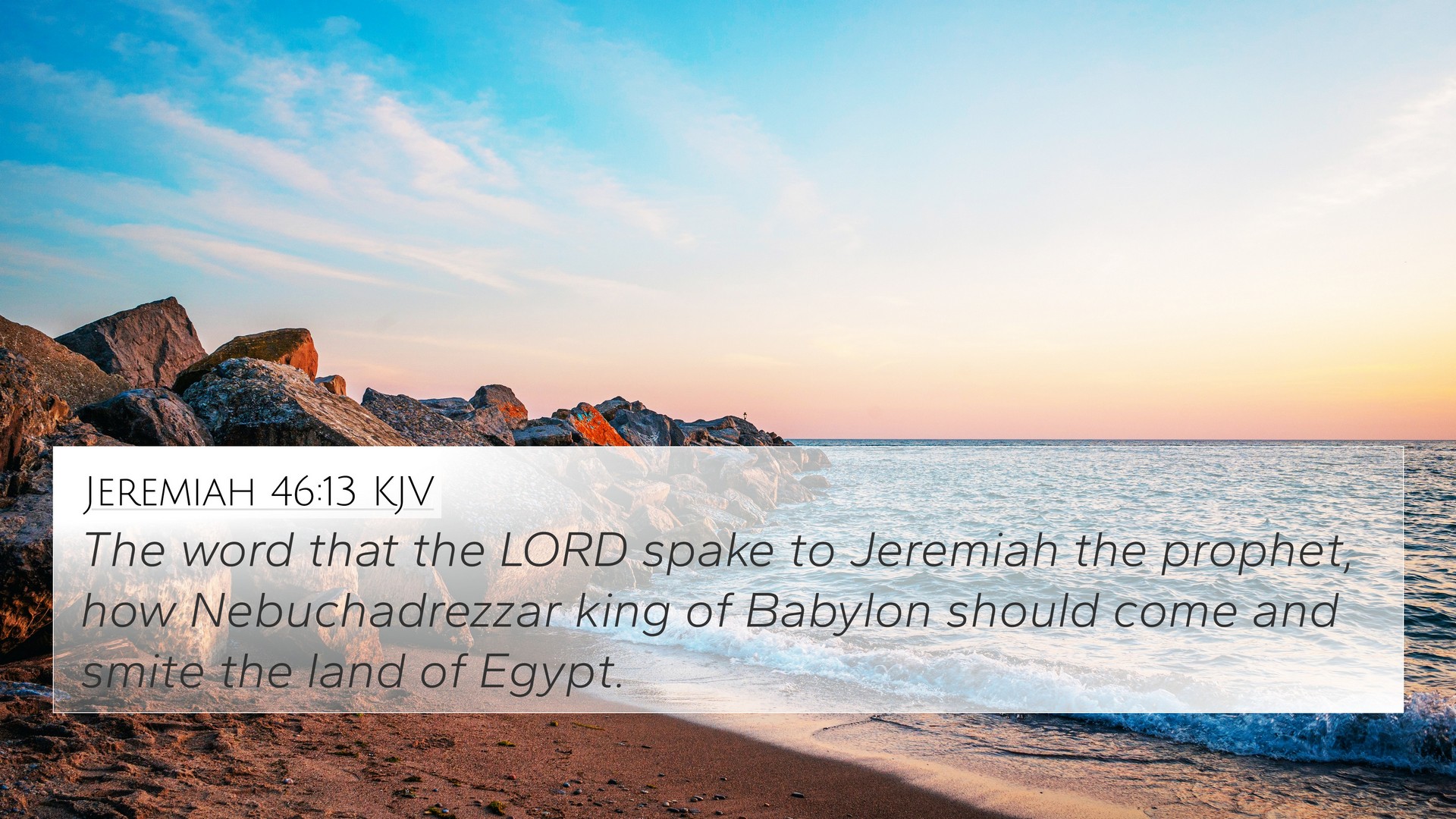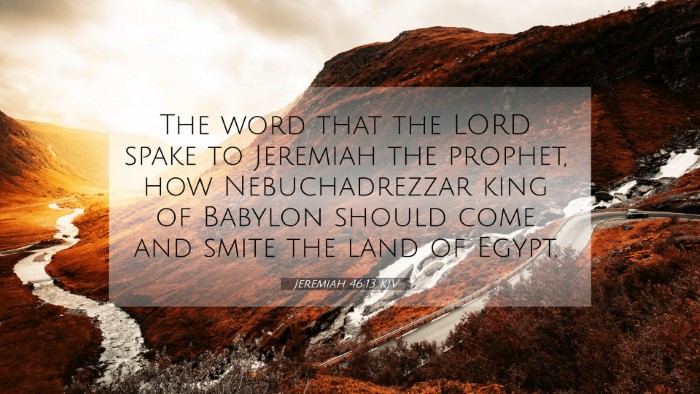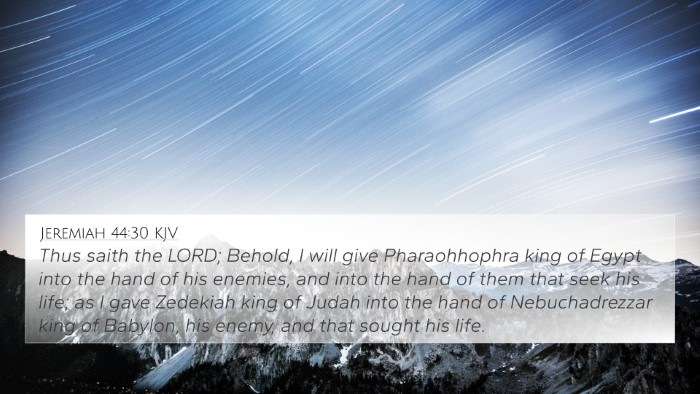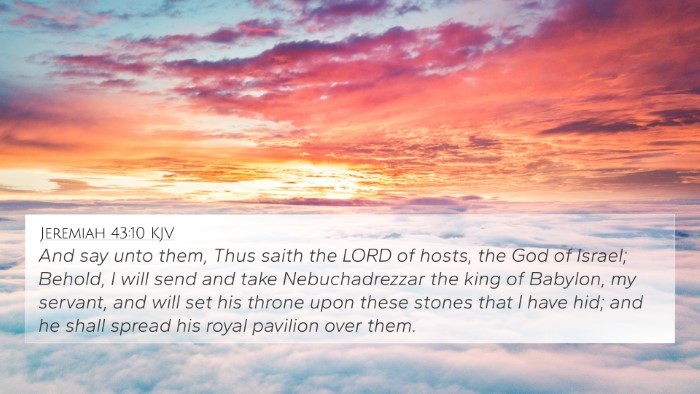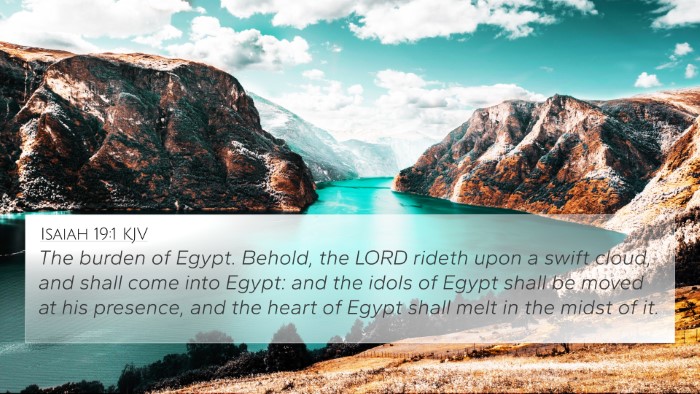Understanding Jeremiah 46:13
Jeremiah 46:13: "The word that the LORD spake to Jeremiah the prophet, how Nebuchadnezzar king of Babylon should come and smite the land of Egypt."
In this verse, God conveys a prophetic message through Jeremiah regarding the impending invasion of Egypt by Babylon under King Nebuchadnezzar. This passage not only serves as a warning to Egypt but also reflects the broader themes of divine judgment and sovereignty.
Interpretation and Context
To fully grasp the meaning of Jeremiah 46:13, it is vital to consider the historical context and implications of this prophecy.
- Historical Background: During Jeremiah’s time, Egypt was a significant power in the region, often at odds with Babylon. The prophecy highlights God's control over nations and the inevitable downfall that comes from opposing His will.
- Divine Judgment: The invasion is characterized not merely as a military action but as an act of divine judgment against Egypt’s disobedience and idolatry.
- God's Sovereignty: This event demonstrates God's authority over worldly affairs, indicating that even powerful nations are subject to His plans.
Bible Verse Cross-References
Jeremiah 46:13 is interconnected with several other scriptures that illuminate its themes:
- Isaiah 19:1-5: Prophecies concerning Egypt, showcasing its impending turmoil.
- Ezekiel 30:10-11: Further declarations about the destruction of Egypt by Babylon.
- 2 Kings 24:7: The historical account of Babylon's conquest and influence over the region.
- Jeremiah 43:10: A direct connection to God’s purpose for Nebuchadnezzar concerning Egypt.
- Daniel 2:37-38: God placing kings in authority and their roles in His overall plan.
- Acts 4:25-28: New Testament reflections on God's sovereignty over nations and their actions.
- Revelation 17:12-14: Symbolic references framing kings and powers in relation to God's ultimate judgment.
Thematic Bible Verse Connections
This verse offers profound opportunities to explore thematic connections between biblical texts. The ongoing interaction between God’s messengers and nations provides a framework for comparative Bible verse analysis.
- Judgment: Many prophets articulate God’s judgment against nations, establishing thematic parallels.
- Calling for repentance: God's messages often serve as warnings, urging nations to return to righteousness.
- Divine sovereignty over history: The relationship between human actions and God’s plans reflects a recurring biblical motif.
Scriptural Cross-Referencing
Cross-referencing biblical texts like Jeremiah 46:13 can enrich our understanding of scripture. Tools for Bible cross-referencing, such as concordances and guides, can help identify these connections more efficiently.
Through careful study, believers may discover how these passages underscore themes of divine authority, judgment, and redemption throughout the Bible.
Applications for Study
This verse can serve multiple purposes in a study setting:
- Bible Cross-Reference Guide: Enhance study sessions by highlighting passages that correlate with Jeremiah 46:13.
- Comparative study of the Prophets: Analyzing parallel messages from Jeremiah and other prophetic books deepens understanding.
- Theme-Based Sermon Preparation: Incorporating related verses can frame powerful messages on God’s judgment and sovereignty.
Conclusion
Jeremiah 46:13 serves as a critical lens through which to view God’s interaction with nations. Its prophetic nature, historical context, and connections to other scriptures reveal a God who is not only reactive to sinful actions but is also proactively guiding the course of history. Engaging in cross-referencing and thematic connections will enable deeper insights into the Bible’s rich tapestry.
